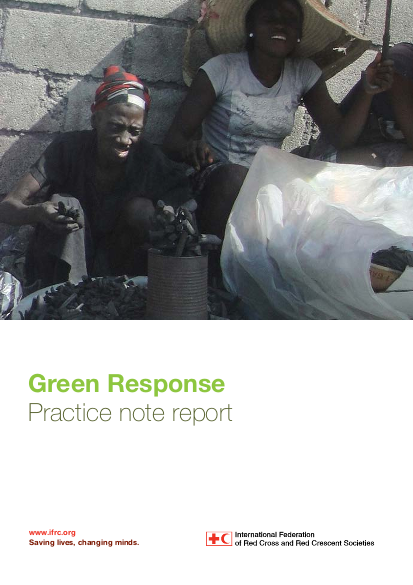
This practice note of the RCRC “green” emergency response evaluation was conducted from April 30th to July 30th, 2013. The purpose of the evaluation was to evaluate the response support services (i.e., logistics: fleet management and procurement, and base camp modus operandi) and selected response programs (i.e., relief products, water and sanitation, and shelters) from an environmental perspective. Two case studies of recent operations of the Red Cross Societies in the Americas are evaluated for the first nine months of each operation: The Haiti Earthquake 2010 and Tropical Depression (TD12-E) in El Salvador representing a large and medium scale emergency operation. The Greenhouse Gas (GHG) protocol is adopted to evaluate environmental climate change impact of the two cases. By using GHG emissions to evaluate impact for climate change, this report also supports larger global vision of IFRC of reducing carbon footprint of its operations in the future as per IFRC Plan of Action Climate Change 2013-2016.